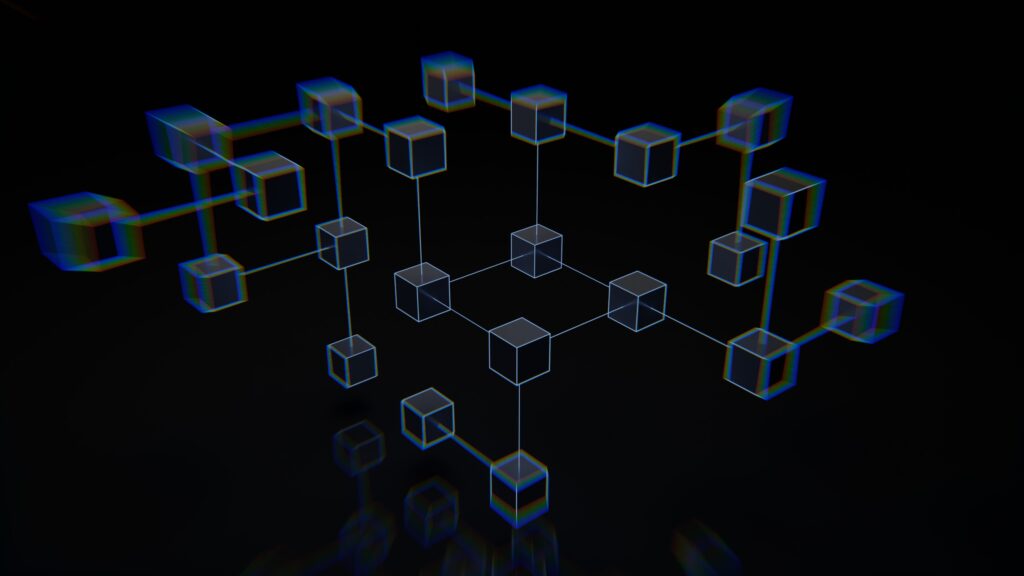Introduction
Marine bunkering, the process of supplying ships with fuel, is a critical aspect of the maritime industry. Traditionally, this industry has been characterized by manual processes, paperwork, and inefficiencies that can lead to errors, disputes, and delays. In recent years, blockchain technology has emerged as a disruptive force with the potential to revolutionize various industries, including marine bunkering.
Blockchain and Blockchain in Bunkering
Blockchain is a decentralized network creating transparent transaction records, encoded in blocks of digital data, ensuring data accuracy and preventing manipulation. Blockchain bunkers in the marine industry utilize this technology to offer end-to-end transparency in the bunker process, from terminal tank quality to vessel delivery, including financial data. Unlike traditional bunker delivery notes (BDNs), prone to manipulation and errors, blockchain bunkers enhance efficiency by reducing paperwork delays, eliminating fraud, and boosting partner confidence. With the potential for significant fraud in the lucrative bunker market, blockchain’s transparency and data integrity play a crucial role in preventing deceptive practices and ensuring fair transactions, benefiting both bunker suppliers and shippers.
The Promise of Blockchain Technology
Blockchain, the underlying technology behind cryptocurrencies like Bitcoin, is a decentralized and distributed ledger that enables secure, transparent, and tamper-resistant record-keeping. Its application in marine bunkering holds several promises for improving efficiency and functionality:
- Transparency and Traceability
Blockchain’s transparency ensures that all authorized stakeholders have real-time access to a single, shared ledger containing a chronological record of all transactions. In bunkering, this means that every step, from order placement to fuel delivery, can be recorded and verified on the blockchain. This transparency enhances traceability, allowing for the monitoring of fuel origin, quality, and compliance with industry standards.
- Smart Contracts for Automation
Smart contracts are self-executing contracts with the terms of the agreement directly written into code. In marine bunkering, smart contracts can automate and streamline various processes. For example, a smart contract can automatically execute payments when predefined conditions, such as successful fuel delivery and verification, are met. This reduces the need for intermediaries, minimizes delays, and ensures that contractual obligations are met seamlessly.
- Data Security and Immunity to Fraud
Blockchain’s decentralized nature and cryptographic principles make it highly secure. Once a record is added to the blockchain, it cannot be altered or deleted, ensuring the integrity of the data. This immutability reduces the risk of fraud, disputes, and inaccuracies in bunkering transactions. Stakeholders can trust that the information on the blockchain is accurate and tamper-proof.
- Efficiency in Documentation and Compliance
The bunkering process involves a multitude of documents, including bills of lading, delivery receipts, and compliance certificates. Blockchain can digitize and streamline these documentation processes, reducing paperwork and manual verification efforts. Additionally, regulatory compliance can be enhanced by maintaining real-time and immutable records on the blockchain, making audits more efficient and less prone to errors.
Challenges and Considerations
While the potential benefits of blockchain in marine bunkering are substantial, there are challenges and considerations that need to be addressed:
- Industry-wide Adoption
The successful implementation of blockchain in marine bunkering requires widespread adoption across the industry. All stakeholders, including vessel owners, suppliers, regulators, and port authorities, need to embrace and integrate blockchain into their processes. Achieving this consensus can be a gradual process and may face resistance from traditional systems.
- Standardization and Interoperability
For blockchain to truly revolutionize marine bunkering, there must be standards and interoperability among different blockchain platforms. Standardizing processes and ensuring that different blockchain networks can communicate with each other is crucial for creating a unified and efficient ecosystem.
- Cybersecurity Concerns
While blockchain itself is considered highly secure, the broader digital infrastructure supporting blockchain applications may be vulnerable to cybersecurity threats. Protecting against hacking and ensuring the cybersecurity of connected systems is paramount for maintaining the integrity and security of bunkering operations.
Real-World Applications of Blockchain Technology
Several initiatives and projects have already started leveraging blockchain technology in the marine bunkering sector. These real-world applications provide insights into the practical impact of blockchain on operational efficiency:
- VAKT: Streamlining Post-Trade Processes
VAKT is a consortium of major energy companies and banks working to transform global commodities trading, including bunkering. The platform utilizes blockchain to digitize and streamline post-trade processes. For bunkering operations, this means that the traditionally manual and time-consuming post-trade processes, such as checking paperwork and changing records on separate systems, can be automated and made more efficient through blockchain technology.
- FuelTrust: AI and Blockchain Integration
FuelTrust combines artificial intelligence (AI) with blockchain in its “AI Digital Chemist™” to assess fuel performance and regulatory compliance. The AI algorithms simulate molecular interactions during fuel consumption, and blockchain ensures a secure and transparent record of these assessments. This integration goes beyond relying solely on manufacturer and supplier specifications, providing vessel owners/operators with a more accurate and data-driven evaluation of fuel quality.
- Revolutionizing Bill of Lading with Blockchain Technology
In August 2018, the Port of Koper, Slovenia (EU), marked a historic moment as the first-ever container processed using the revolutionary CargoX Smart Bill of Lading™ on the blockchain was successfully released. This electronic issuance and transfer of the Bill of Lading occurred within minutes, a stark contrast to the traditional timeframe of days or weeks. The utilization of an ultra-secure public blockchain network significantly reduced the risks of loss, theft, or damage associated with the Bill of Lading.
- Ethereum Blockchain Facilitates World’s First Shipping Transaction
In March 2018, 300cubits achieved a milestone with the successful completion of the first trial shipment using its smart contract deployed on the Ethereum blockchain. The trial involved the secure return of TEU tokens, held as a booking deposit on the blockchain, to users upon receipt of a port EDI message for a textile shipment from Malaysia to Brazil.
- TradeLens:
TradeLens, a blockchain-enabled shipping solution aimed at enhancing efficiency and security in global trade. The platform fosters information sharing and transparency among various stakeholders, promoting industry-wide innovation. The TradeLens early adopter program boasts the active involvement of 94 organizations committed to participating in this blockchain-based platform built on open standards.
- Abu Dhabi Ports Pioneer Blockchain Technology with Silsal
Silsal combines blockchain and unique digital user identities to establish a secure link among stakeholders in the trade community. This innovative approach utilizes blockchain as an open digital ledger, enhancing security, transparency, and efficiency in recording and extracting transaction details.
- EY and Guardtime Unveil World’s First Marine Insurance Blockchain Platform
EY and Guardtime, in collaboration with industry leaders such as announced the world’s first blockchain platform for the marine insurance sector. Built on Microsoft Azure global cloud technology, this platform is poised to deliver significant value to the insurance industry by leveraging blockchain benefits for end-to-end use across the marine sector.
- Port of Antwerp’s Blockchain-Based Document Workflow
The Port of Antwerp has embraced blockchain technology to automate the document workflow for certificates of origin and phytosanitary certificates. Through the use of “Smart Contracts,” documents are transferred securely via blockchain, with a specific solution developed for phytosanitary certificates in collaboration with Belfruco, Enzafruit, PortApp, 1-Stop, and T&G Global. This pilot project reaffirms the Port of Antwerp’s commitment to innovation and digitization, actively contributing to the security and automation of administrative processes in the food supply chain.
- Ocean Carriers and Terminal Operators Form Blockchain Consortium
By harnessing Global Shipping Business Network (GSBN), a collaborative digital platform based on distributed ledger technology, been designed to ensure that safe transportation certificates and the information they contain can be verified from the original source, and the information is accurate and reliable.
- ABN AMRO, Port of Rotterdam, and Samsung SDS Pilot Blockchain Integration
ABN AMRO, the Port of Rotterdam Authority, and Samsung SDS are collaborating on a blockchain pilot to enhance transparency and efficiency in international distribution chains. The joint effort aims for complete paperless integration of physical, administrative, and financial streams. The goal is to streamline processes within freight transportation, monitoring, and financing, aligning with the vision of making logistics as simple as ordering items online.
- LR and HHI Explore Blockchain in Shipbuilding
Lloyd’s Register (LR) and Hyundai Heavy Industries (HHI) are engaged in a cooperative project to explore the application of blockchain in shipbuilding. This initiative aligns with LR’s introduction of a prototype blockchain-enabled Class register, a pioneering demonstrator for registering ships into Class using blockchain technology. The project aims to unlock the value of blockchain in the maritime industry.
- Maritime Blockchain Labs (MBL) Enhances Crew Management with Blockchain
MBL, a collaboration between BLOC and the Lloyd’s Register Foundation, has introduced a consortium to pilot a blockchain-based seafarer certification system. Focused on improving crew management and streamlining documentation, the project targets challenges associated with safety documentation verification, paper-based certificate management, and limited access to validated safety and training certifications of seafarers.
- MBL Advances Fuels Assurance Platform Towards Commercialization
MBL, in partnership with Lloyd’s Register Foundation and BLOC, is progressing its fuel provenance register, a blockchain-based project for the maritime sector. This demonstrator project aims to provide trusted information about fuel origin, journey, and characteristics. As it enters the testing and scaling phase, this initiative signifies a crucial step towards commercialization.
Future Outlook
The integration of blockchain technology into marine bunkering operations is still in its early stages, but the potential for positive impact is significant. As the industry continues to explore and implement blockchain solutions, we can anticipate:
- Increased Efficiency and Cost Savings
Blockchain’s ability to automate processes, reduce paperwork, and minimize delays can lead to increased operational efficiency and cost savings. Vessel owners and operators may benefit from streamlined bunkering operations and lower administrative costs.
- Enhanced Trust and Collaboration
The transparency and immutability of blockchain records contribute to enhanced trust among stakeholders. This, in turn, can foster collaboration and partnerships within the bunkering ecosystem, as parties can rely on accurate and verifiable data.
- Regulatory Compliance and Reporting
Blockchain’s real-time and transparent nature can simplify regulatory compliance and reporting. Authorities can access blockchain records to ensure adherence to industry regulations, and audits can be conducted more efficiently. Top of FormTop of Form
Conclusion
Blockchain technology holds immense potential to transform marine bunkering operations by enhancing transparency, automating processes, and ensuring compliance. While challenges exist, the positive impact on efficiency and functionality cannot be overlooked. As the maritime industry embraces digital transformation, the integration of blockchain in bunkering operations paves the way for a more transparent, secure, and efficient future. Continued collaboration, innovation, and careful consideration of challenges will be key to realizing the full benefits of blockchain in marine bunkering.
– Riya Yadav


